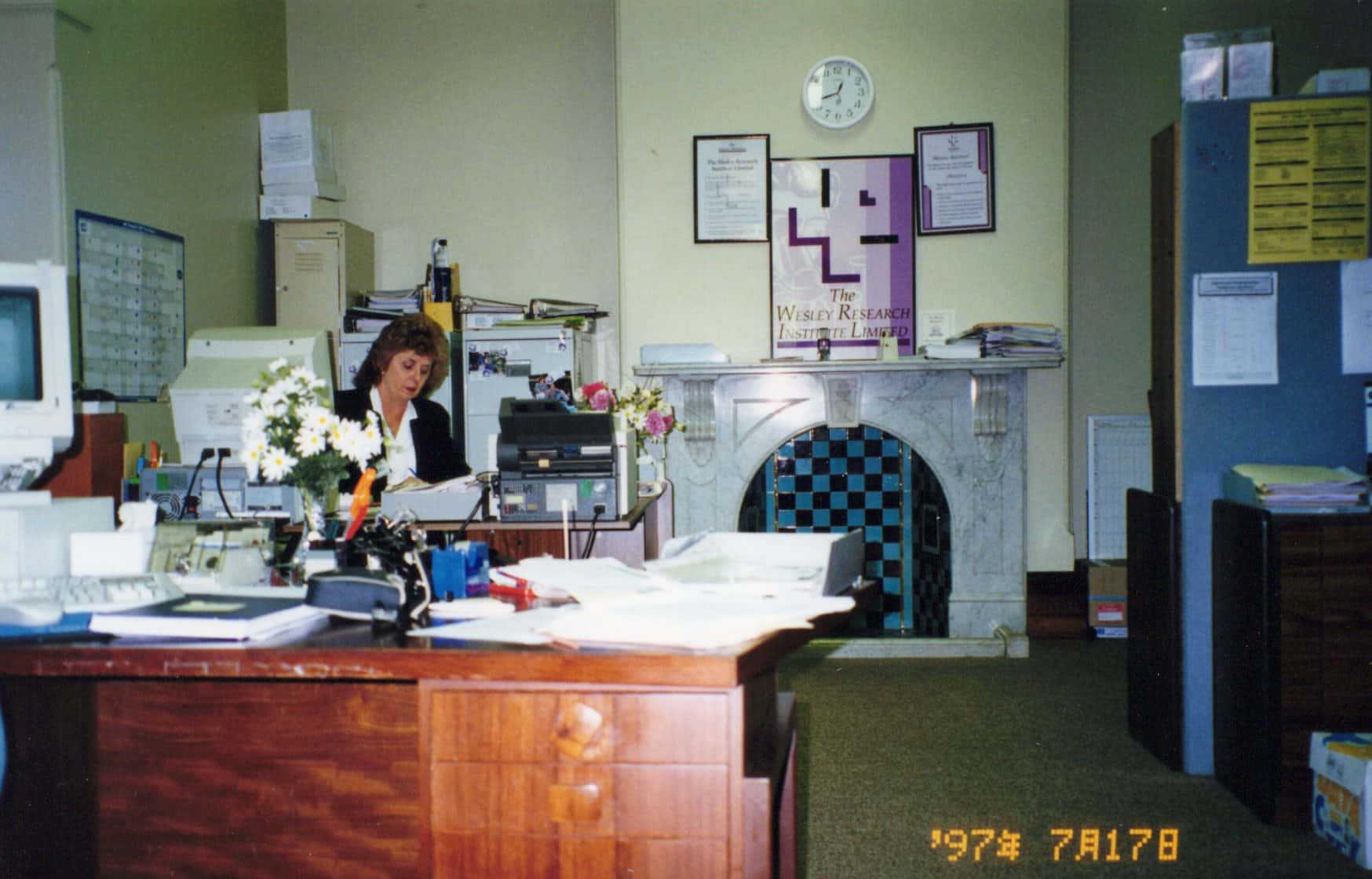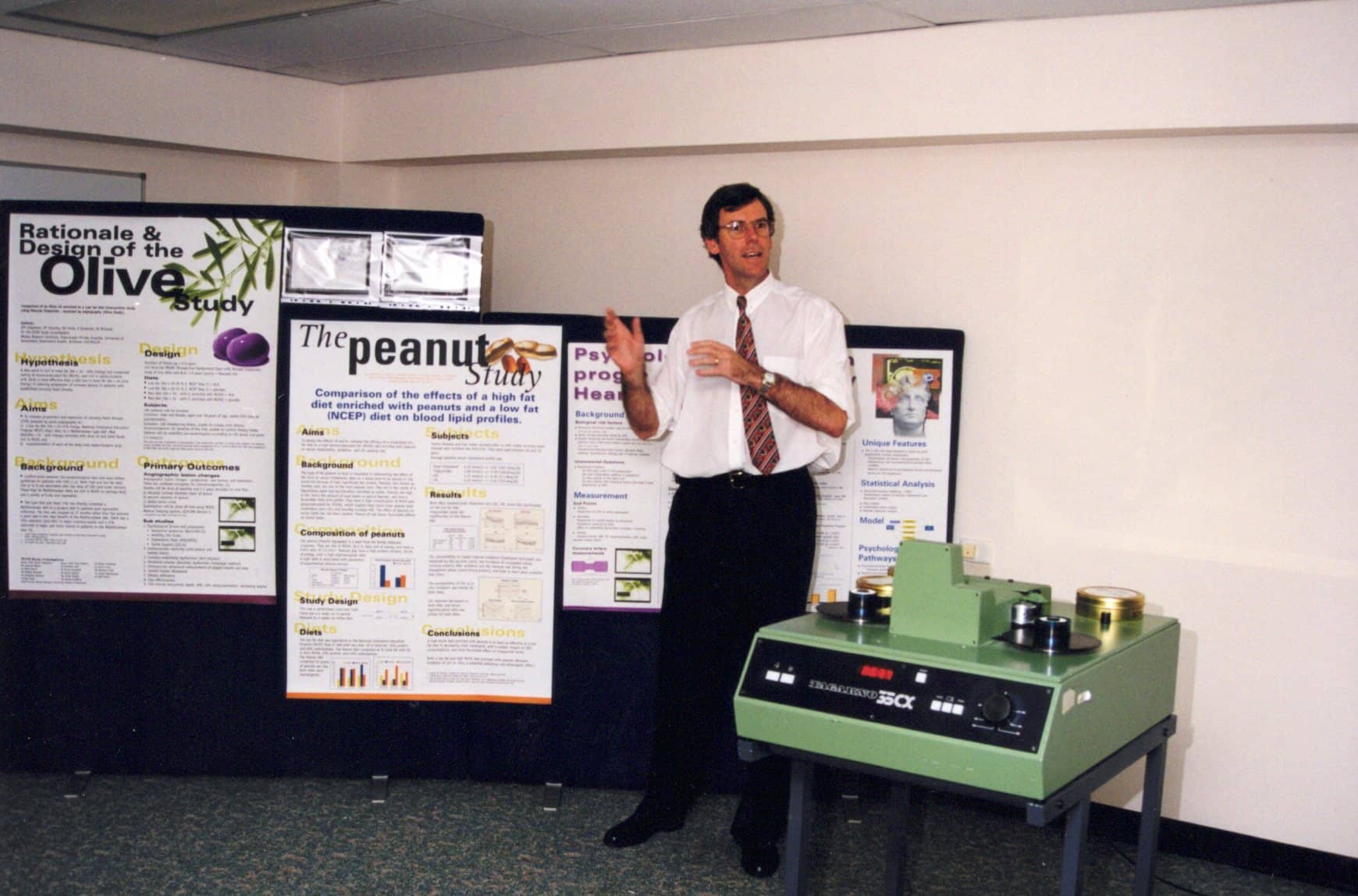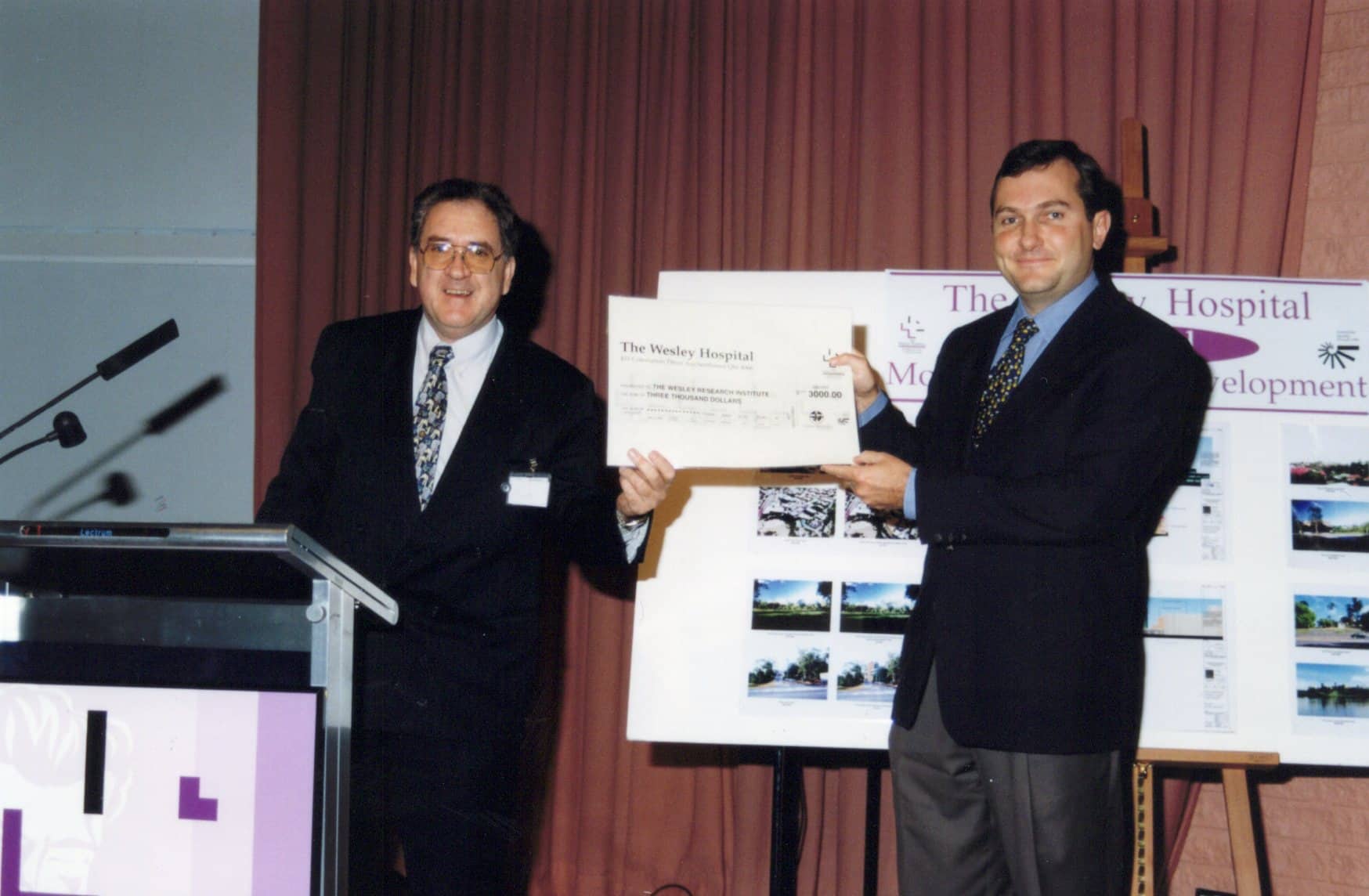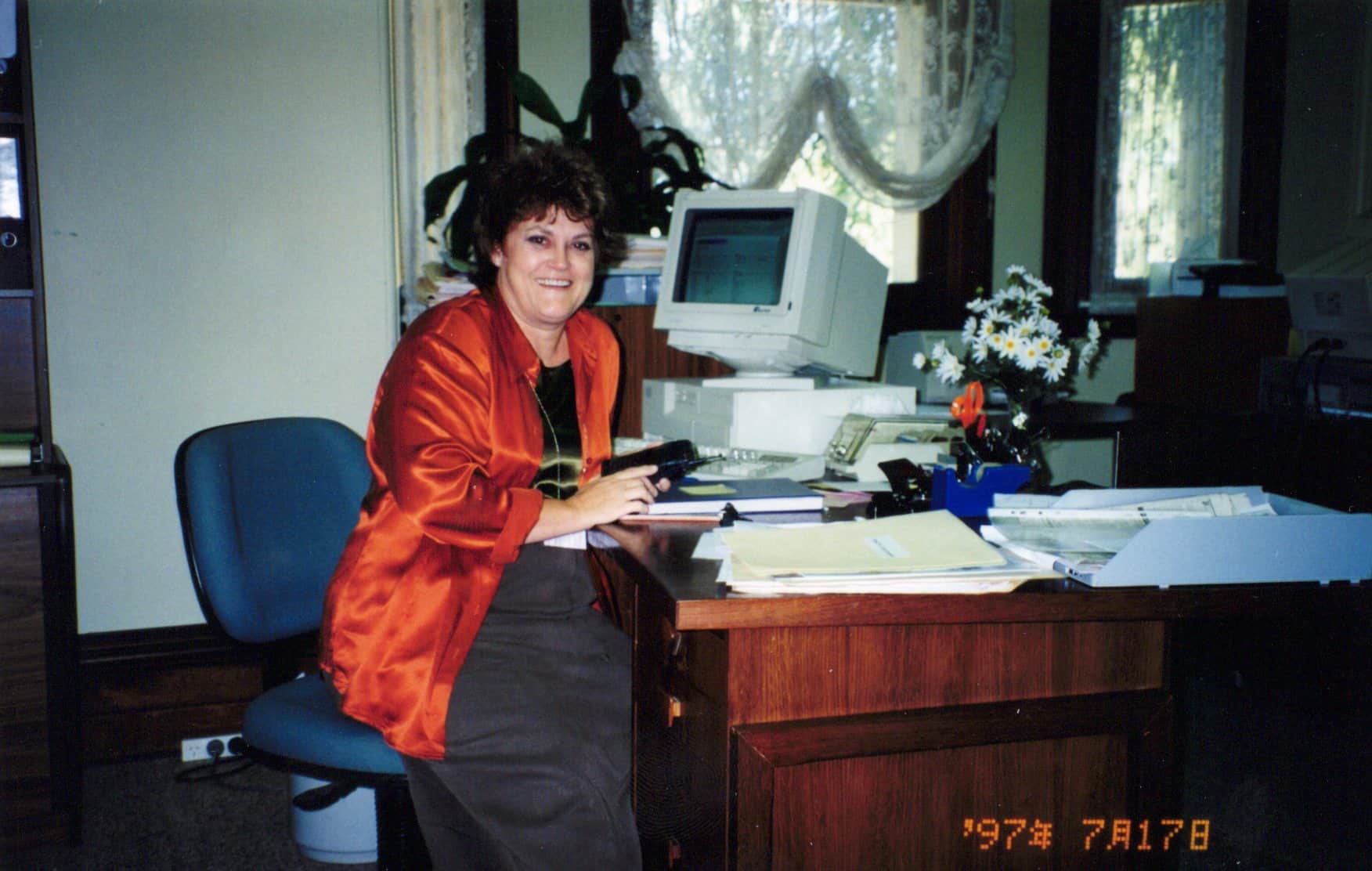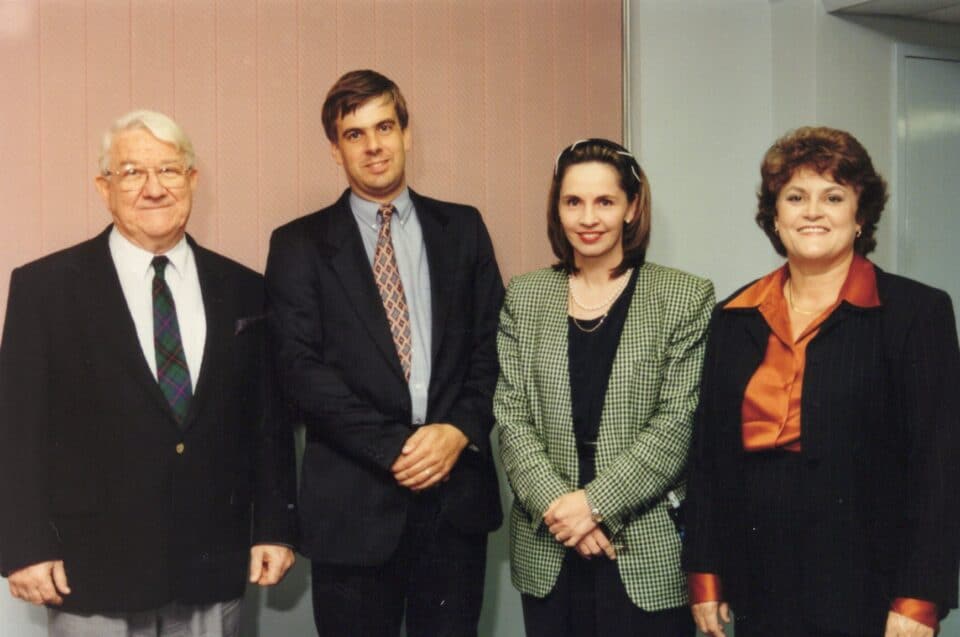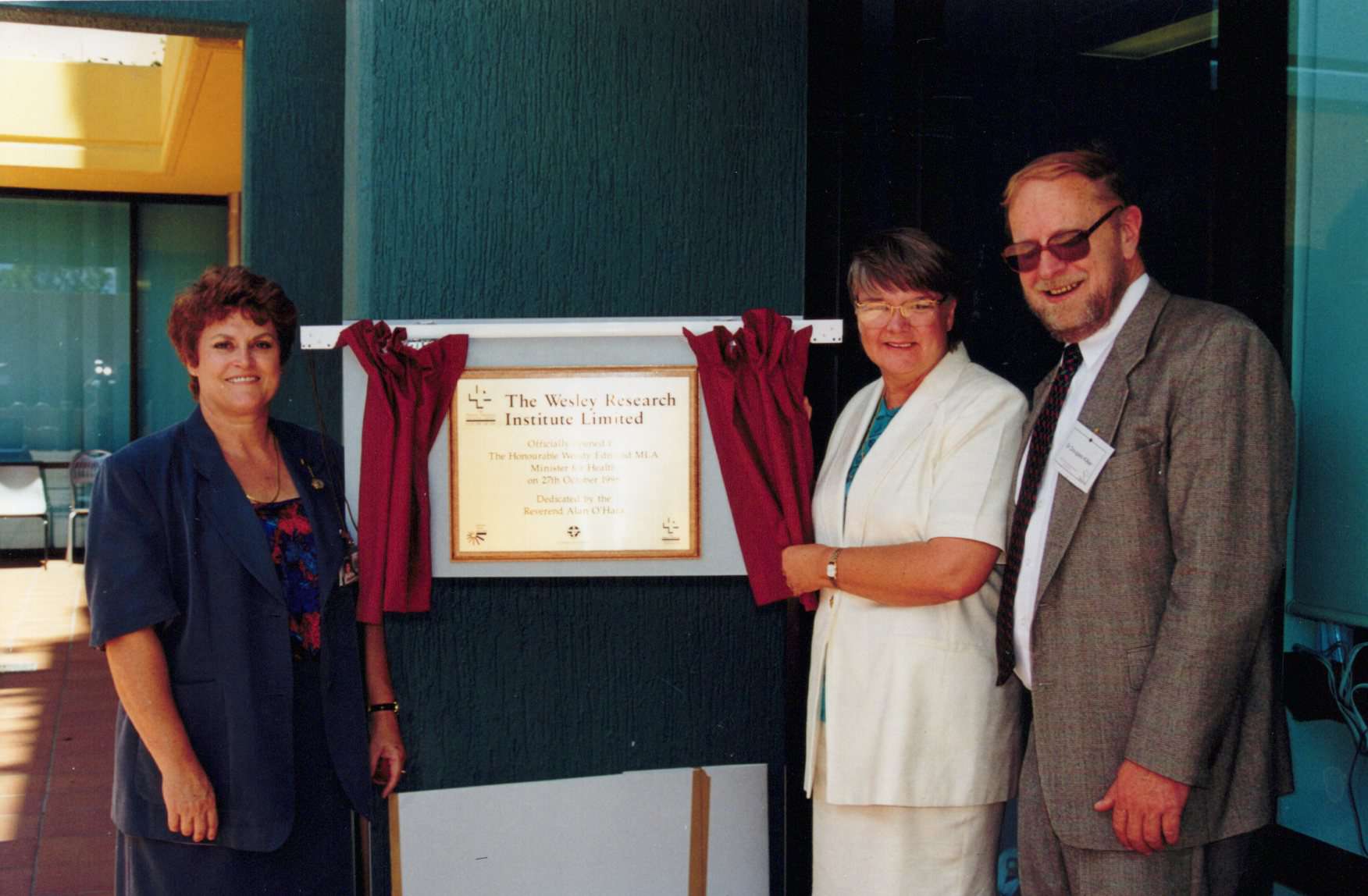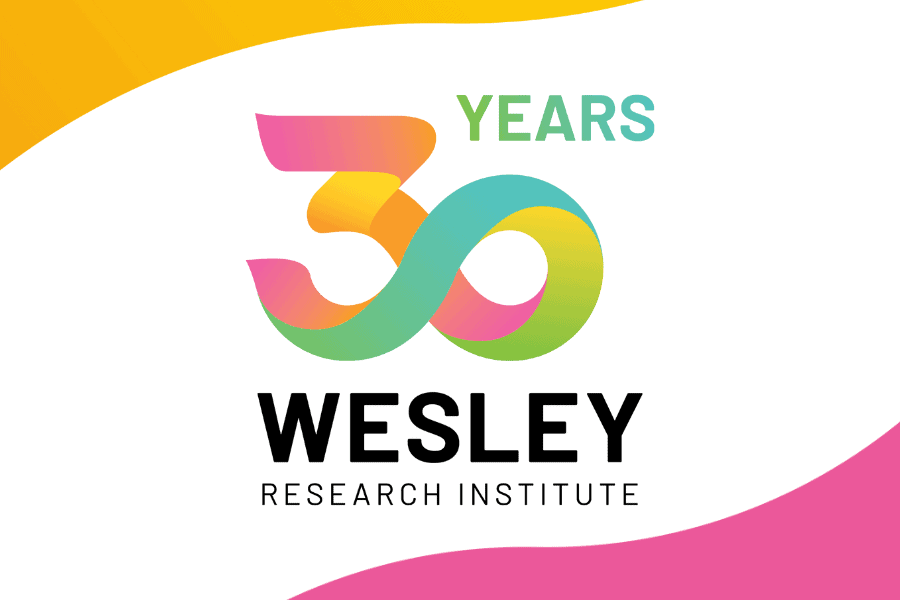
Since our founding in 1994, Wesley Research Institute (WRI) has grown into a leader in health and medical research, consistently working to improve patient outcomes. Over the past three decades, WRI has made a lasting impact through its commitment to bridging the gap between clinical practice and health research, ensuring that the latest advancements directly benefit patients. This 30-year retrospective highlights key milestones and the contributions that have shaped our journey.
1990s The Early Years – Building a Foundation for Excellence
WRI was founded with a clear mission — to translate cutting-edge research into real-world medical solutions. In 1994, Mr Bill Brett Jnr was appointed as Chair of the Board, with Emeritus Professor Julie Campbell AO appointed as first Director in 1996. In our early years, with the support of UnitingCare, we laid the groundwork for what would become a legacy of research excellence. Early successes in cardiovascular health and cancer research set the stage for future initiatives, establishing WRI as a trusted partner in the healthcare community.
One of the notable achievements in the early years was WRI’s first Scientific Symposium in April 1997, ‘Recent Advances in Cardiology’, which marked the beginning of our commitment to knowledge sharing and professional collaboration. During this period, WRI also commenced its first clinical trials, further cementing its role as a vital contributor to medical research and patient care.
2000s A Decade of Growth and Collaboration
2000s, we expanded our reach through strategic partnerships with healthcare providers and research institutions.
In the early 2000s, we achieved significant milestones in our commitment to medical education and collaboration. Advocacy events such as symposiums and community engagements brought together donors, community members, allied health professionals and researchers, strengthening our ties within the medical and broader community.
Another major achievement during this period was the development of MRI-guided techniques fpr detecting prostate cancer. This innovative approach significantly improved the accuracy of locating cancerous tissues, allowing for more precise diagnosis and reducing the need for painful biopsies. The technique not only transformed the way prostate cancer is diagnosed but also led to better outcomes for patients, with fewer invasive procedures and earlier detection. Reflecting WRI’s commitment to applied research, this project demonstrated the Institute’s ability to translate cutting-edge scientific advancements directly into clinical practice. This coincided with the awarding of the first research fellowship, a milestone that marked the beginning of a long tradition of nurturing innovative Australian research at WRI.
In 2007, Queensland Premier Peter Beattie officially opened the new Clinical Trials Centre and WRI Biobank, previously known as the Tissue Bank, which was supported by a $1.42 million grant from the Queensland Government’s Smart State Research Facilities Fund.
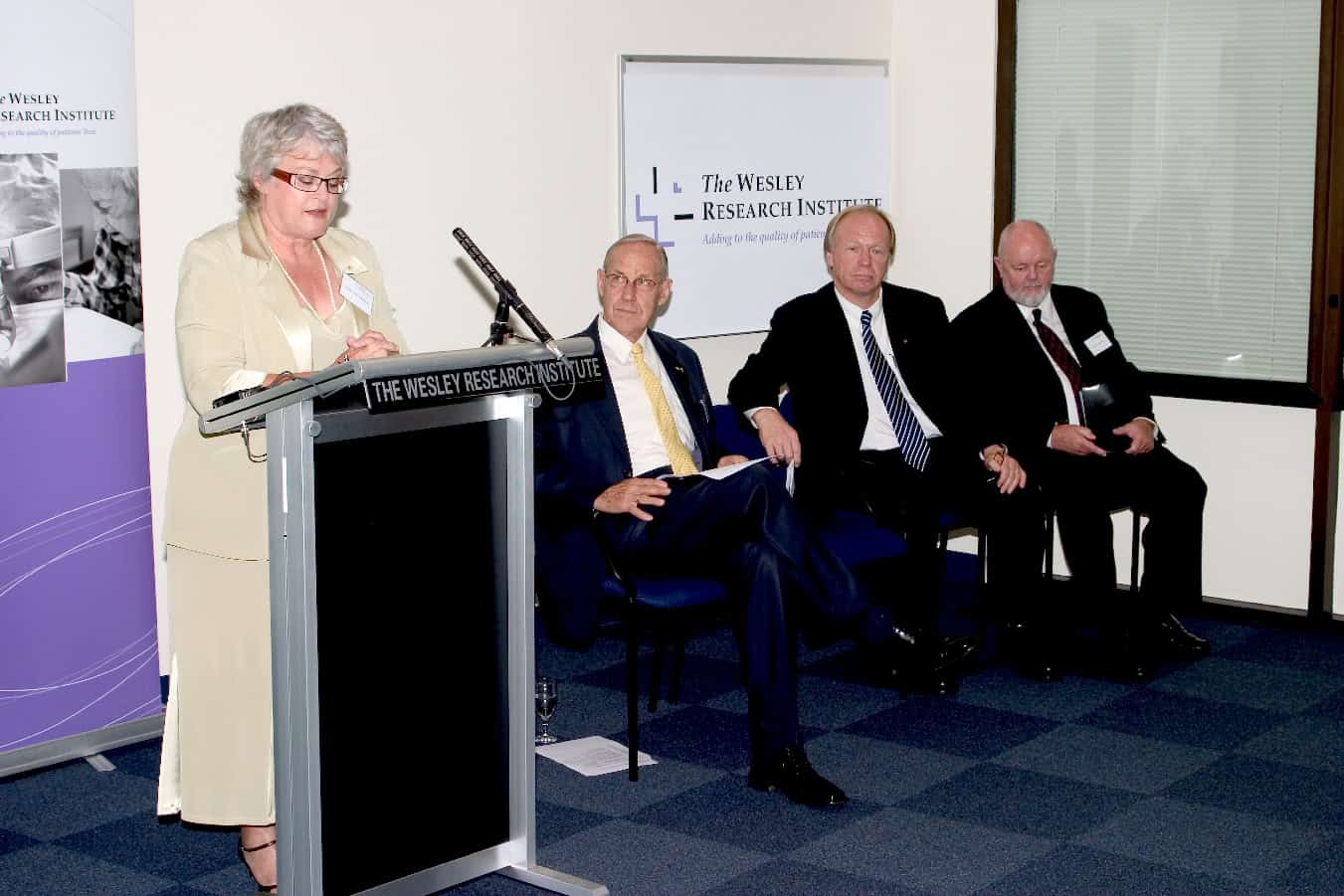
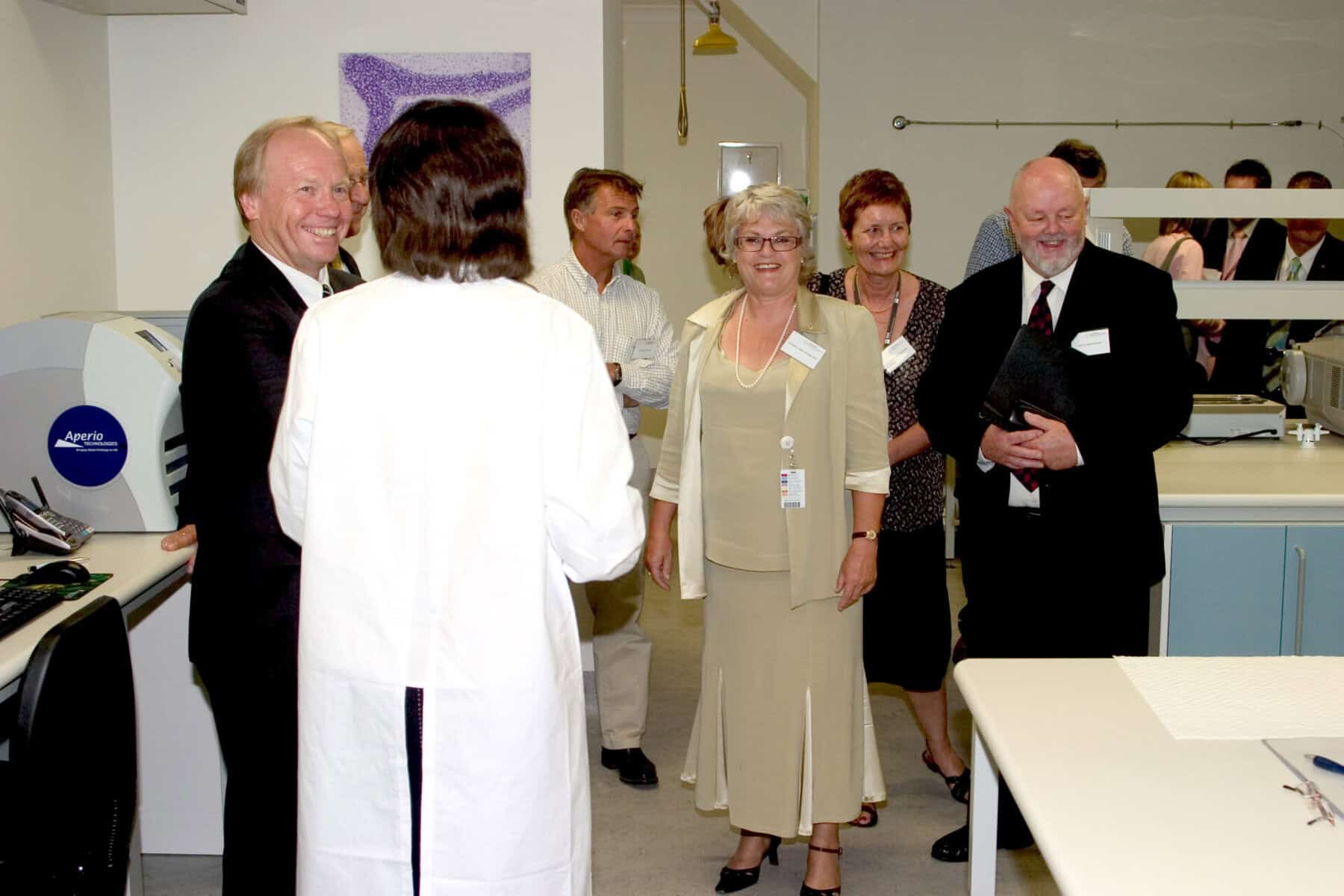
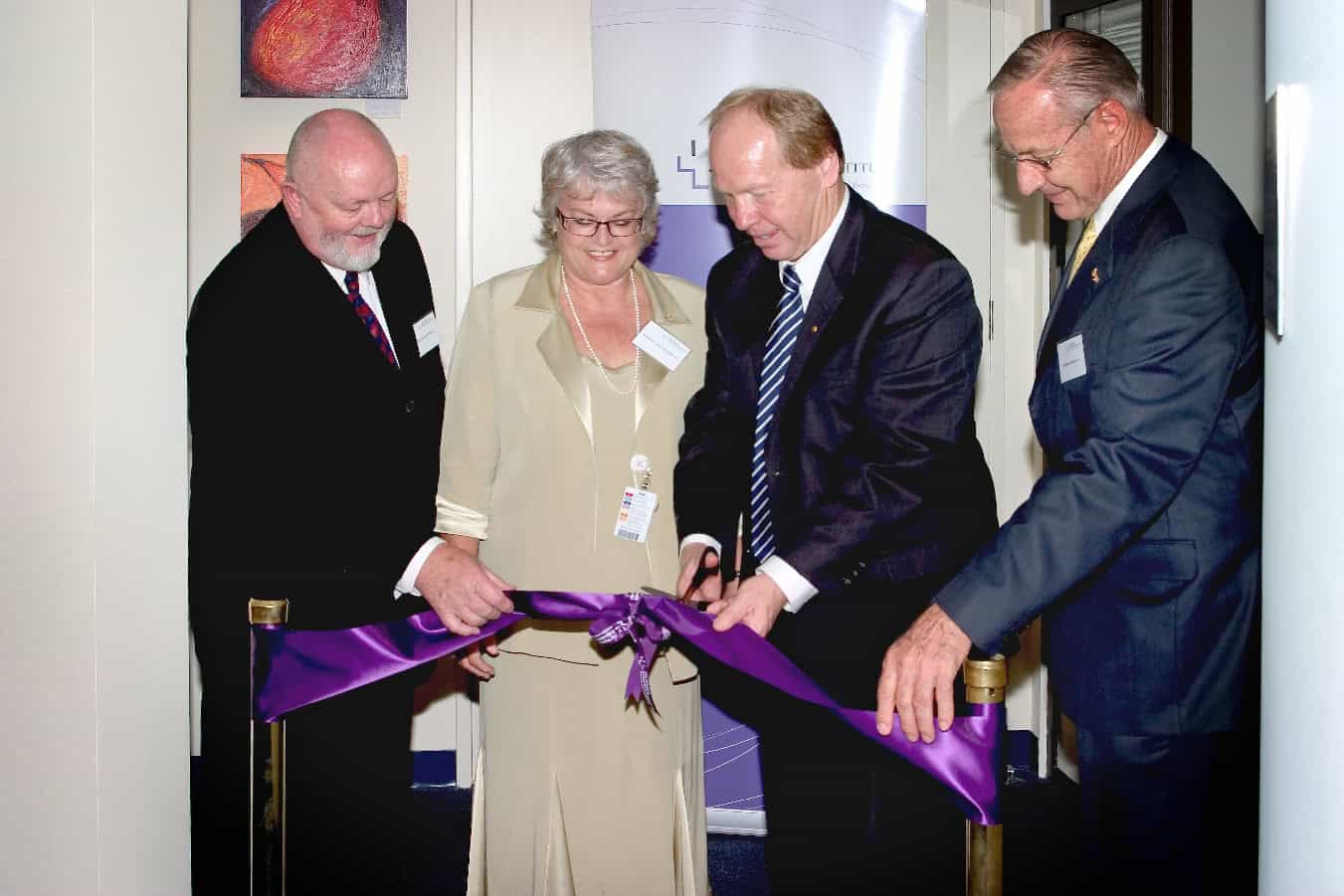
In May 2009, the 8th floor of the East Wing at The Wesley Hospital was officially opened, providing a state-of-the-art space for WRI’s growing research activities. This expansion, enabled by the significant $10 million grant, allowed WRI to enhance its research capabilities, facilitating advancements across various medical fields. This period also marked a significant milestone with the funding of our 100th research project, further solidifying WRI’s position as a leader in applied medical research.
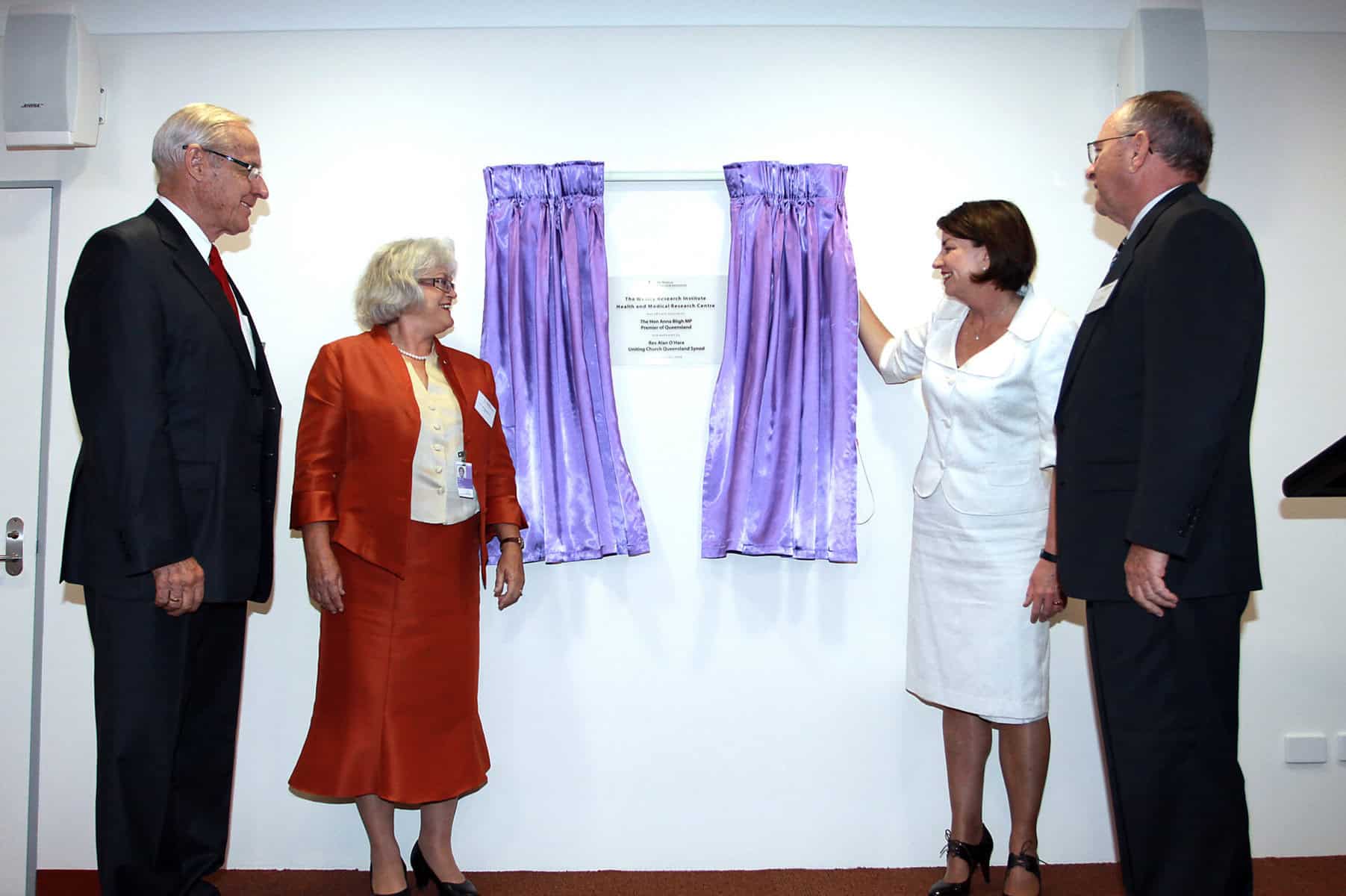
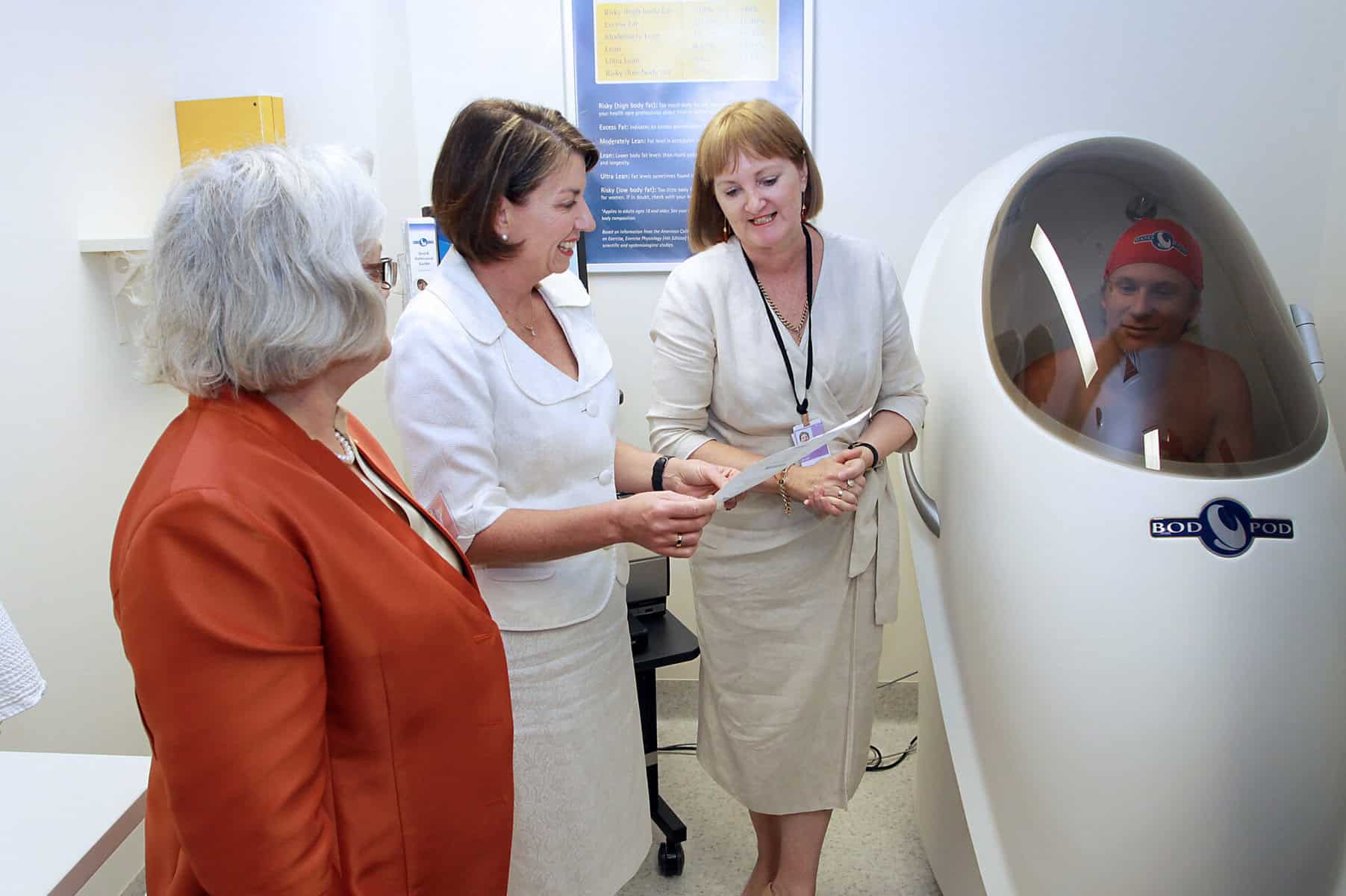
Advancing Medical Research in the 2010s
The 2010s saw WRI make important advancements in neurological research, supported by a $5 million donation from the Brazil Family Foundation. This funding enabled research into conditions like Parkinson’s disease and Motor Neurone Disease, positioning WRI at the forefront of neurological studies. The MAGNIFI project, which investigates the use of MRI techniques to identify cancerous lymph nodes, also launched during this time, offering new hope to patients.
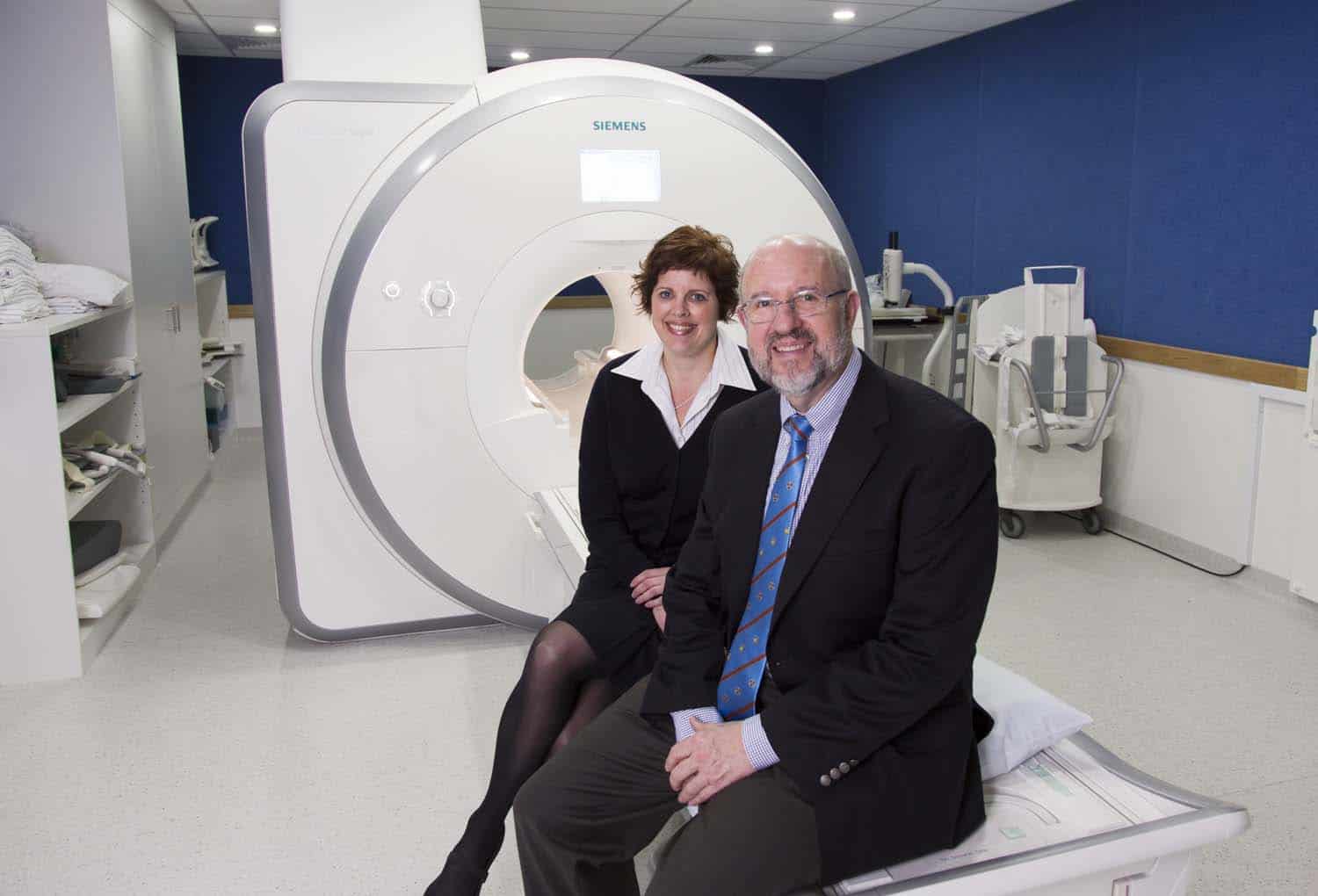
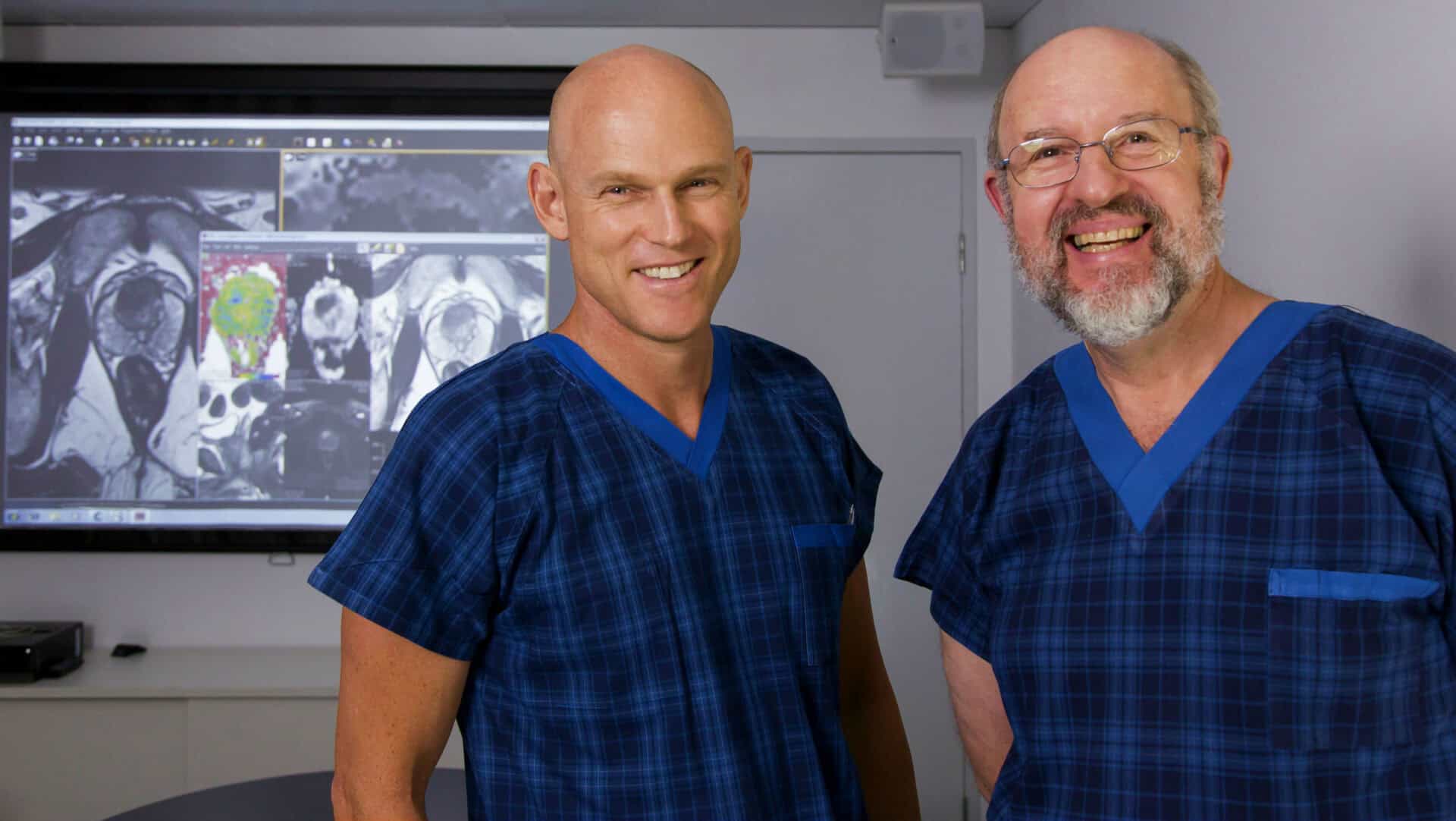
Our international collaborations, including partnerships with Radboud University in the Netherlands, expanded our global impact and enhanced our research capabilities. These collaborations have been instrumental in advancing our understanding of complex diseases.
A pivotal moment during this period was the merger in 2014 of WRI and St Andrew’s Medical Institute, which provided a stronger platform for research. This merger allowed us to attract top researchers and clinicians, leading to a surge in innovative projects.
Recent Years – Innovation, Expansion and New Frontiers
Over the past decade, Wesley Research institute (WRI) has continued to grow both in scope and impact. For example, the WRI Biobank, established in 2007, currently holds over 40,000 samples, including those collected as part of the Queensland Brain Tumour Bank, the Australian Autism Biobank and the Justin Cameron Sarcoma Collection. This expansive repository has been pivotal in supporting a wide range of research initiatives that have had a tangible impact on patient care.
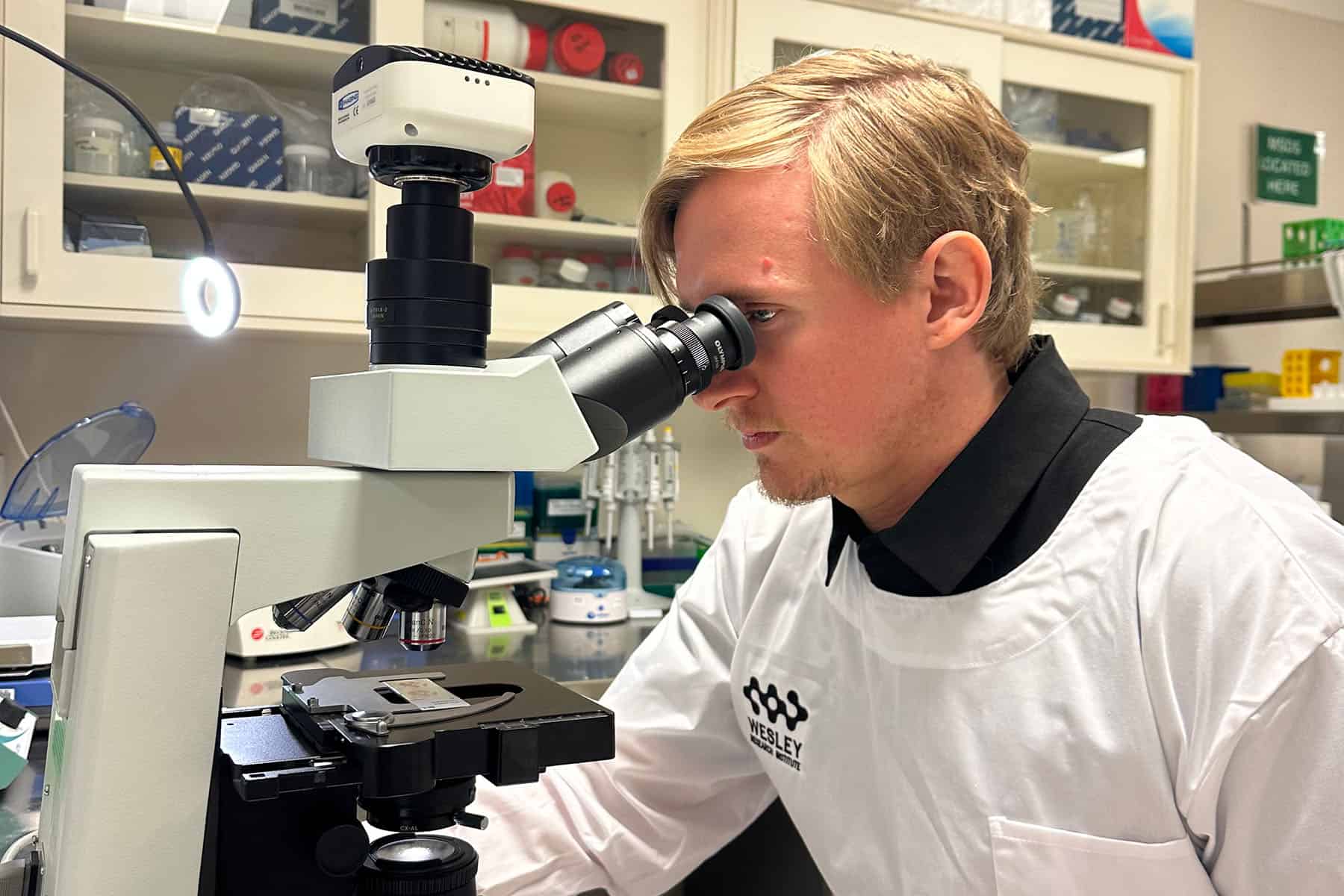
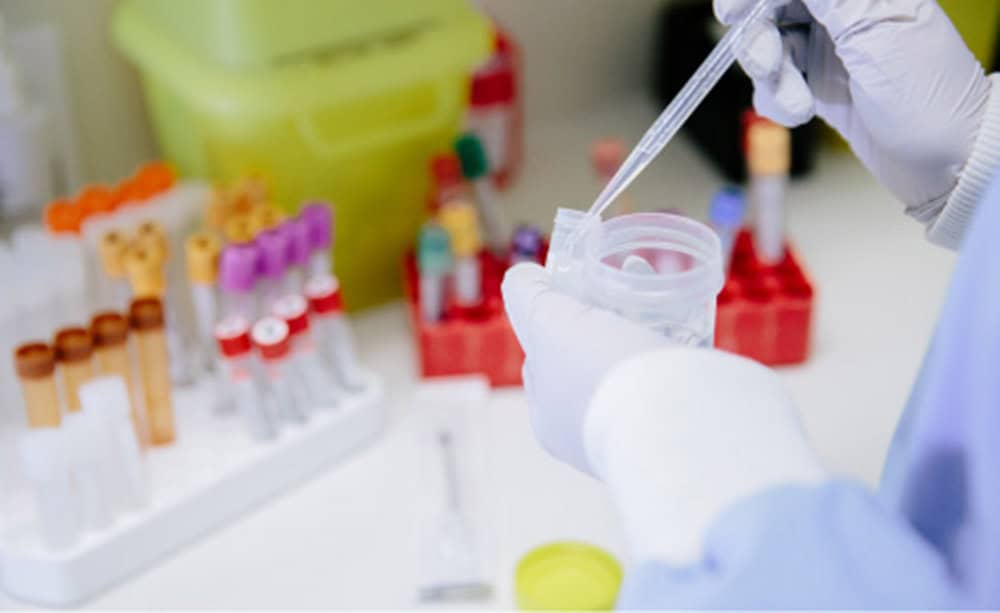
The global pandemic in 2020 brought unprecedented challenges and WRI responded swiftly by launching the COVID-19 Rapid Response Research Centre. This centre was dedicated to supporting urgent research projects that addressed the immediate needs of the healthcare system during the pandemic, contributing to the global effort to combat COVID-19.
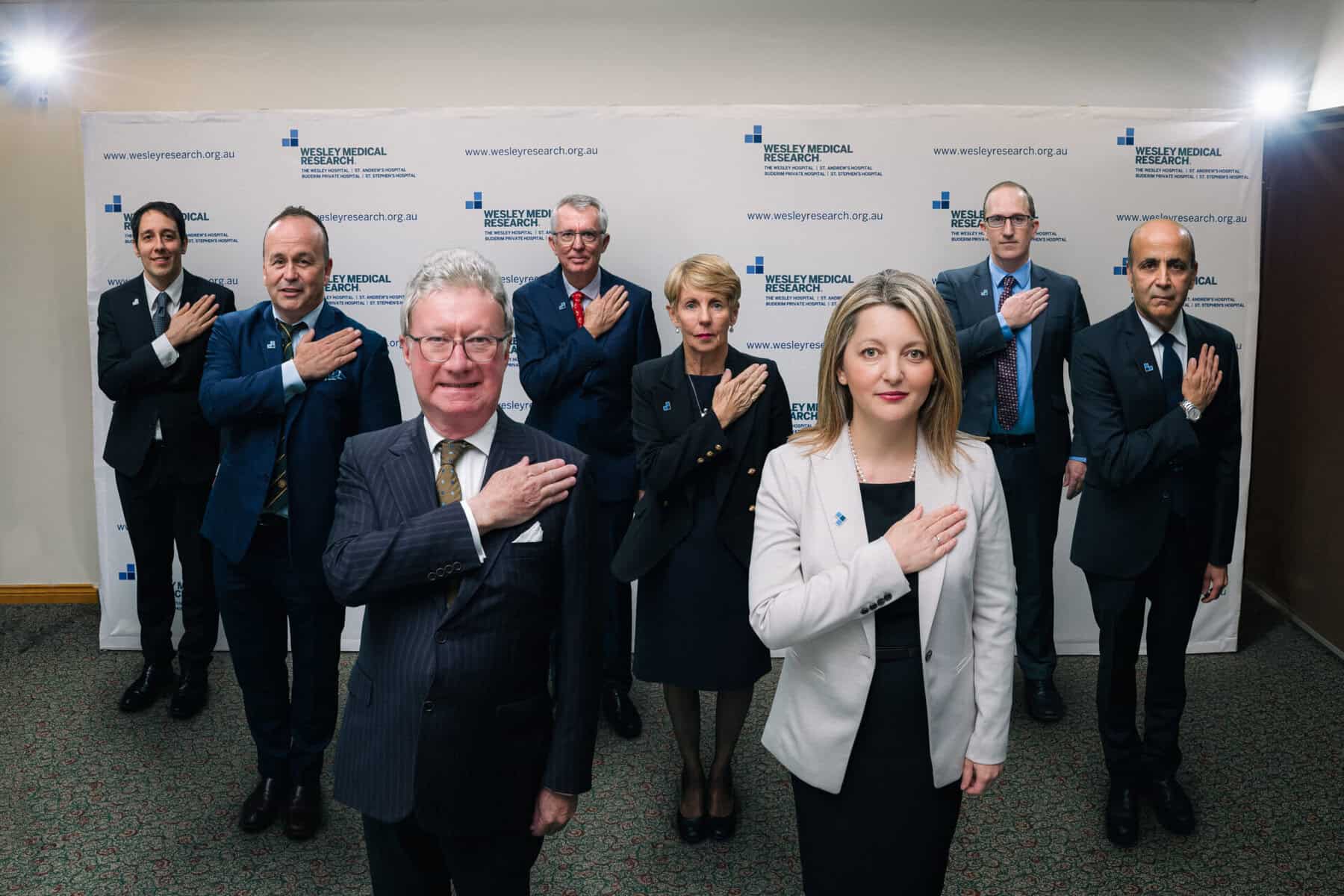
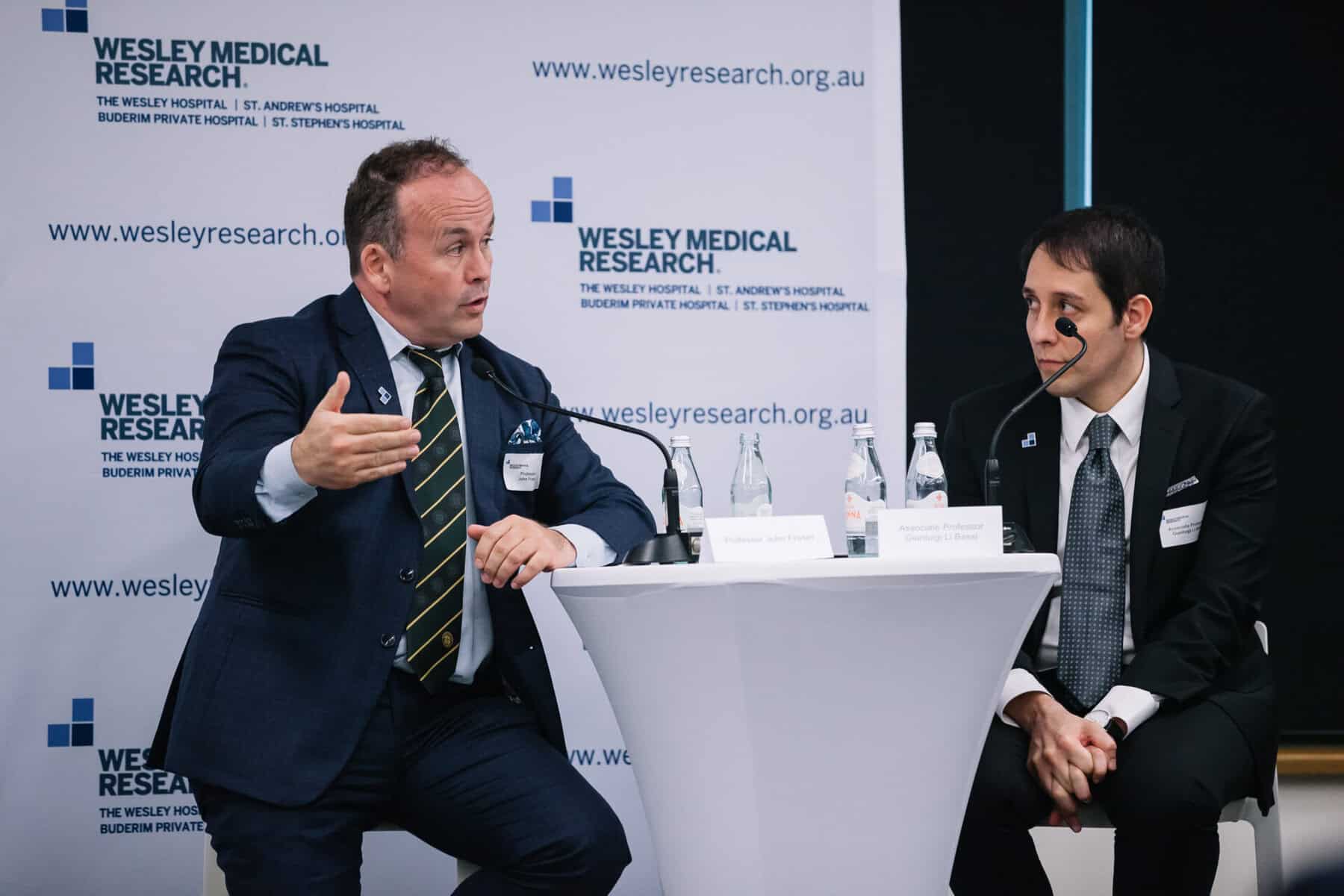
WRI’s commitment to advancing healthcare was further demonstrated with the establishment of the Health Services Research team. As the world grapples with emerging health issues, such research is crucial to ensuring that healthcare systems can adapt and provide optimal care to patients.
In 2021, WRI invested $4 million into the Neurology Research Program, accelerating efforts to better understand and treat neurological conditions such as Parkinson’s disease and Motor Neurone Disease.
Additionally, $1 million was invested into the Coeliac Disease and Immune Health Research Program, led by Dr James Daveson, aiming to improve the understanding of coeliac disease, enhance diagnostic accuracy and ultimately improve the quality of life for patients and their families.
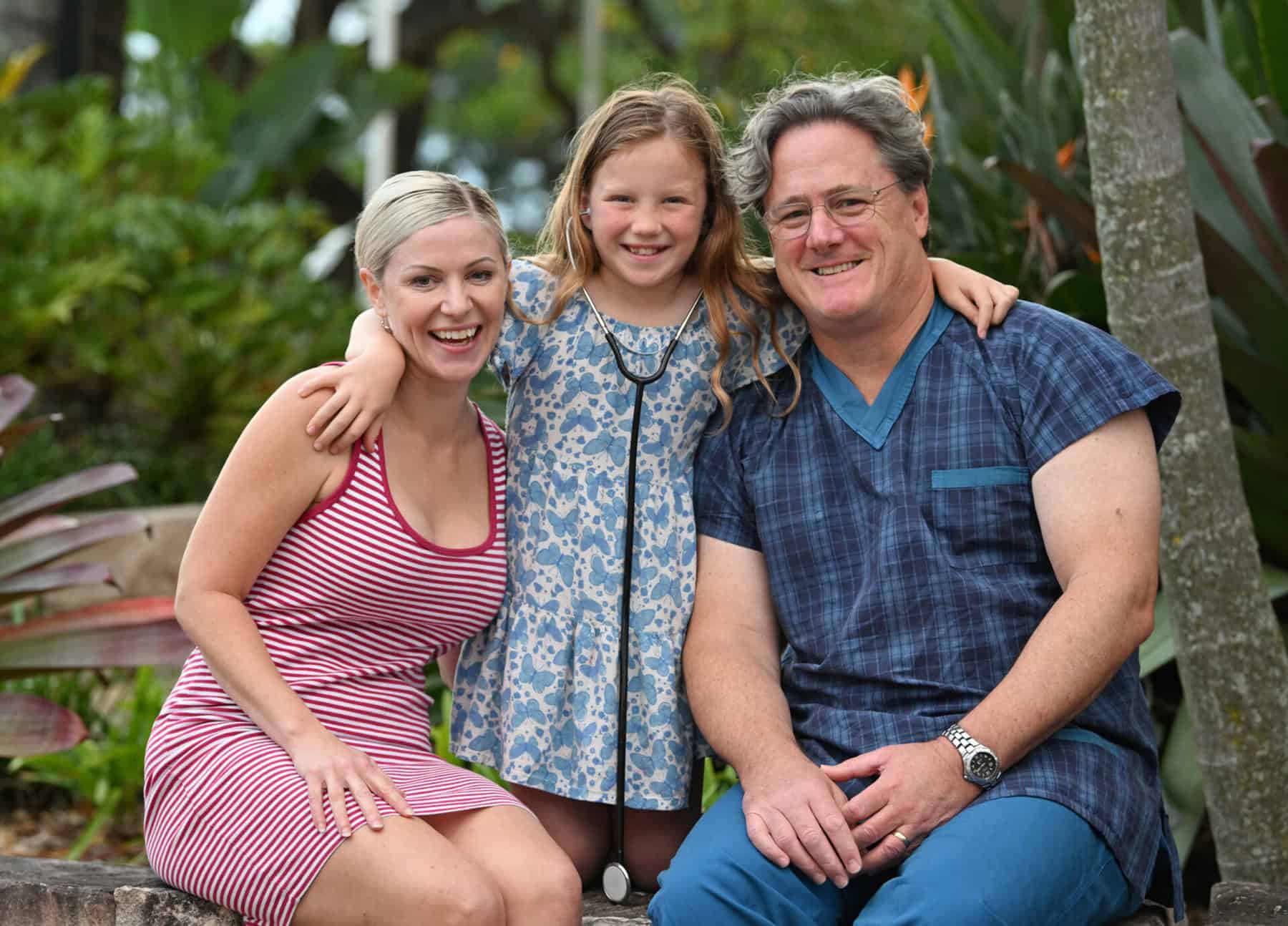
The expansion of the Clinical Trials Centre has also been a key focus, enabling the discovery of new therapies for rare diseases and other emerging health challenges.
In 2022, WRI underwent a significant rebranding, changing its name from Wesley Medical Research back to Wesley Research Institute. This rebranding was accompanied by a new logo, reflecting the Institute’s evolution and ongoing commitment to advancing health research.
Earlier this year, WRI established the Queensland Spatial Biology Centre (QSBC), a cutting-edge research hub dedicated to transforming healthcare through advanced spatial biology techniques.
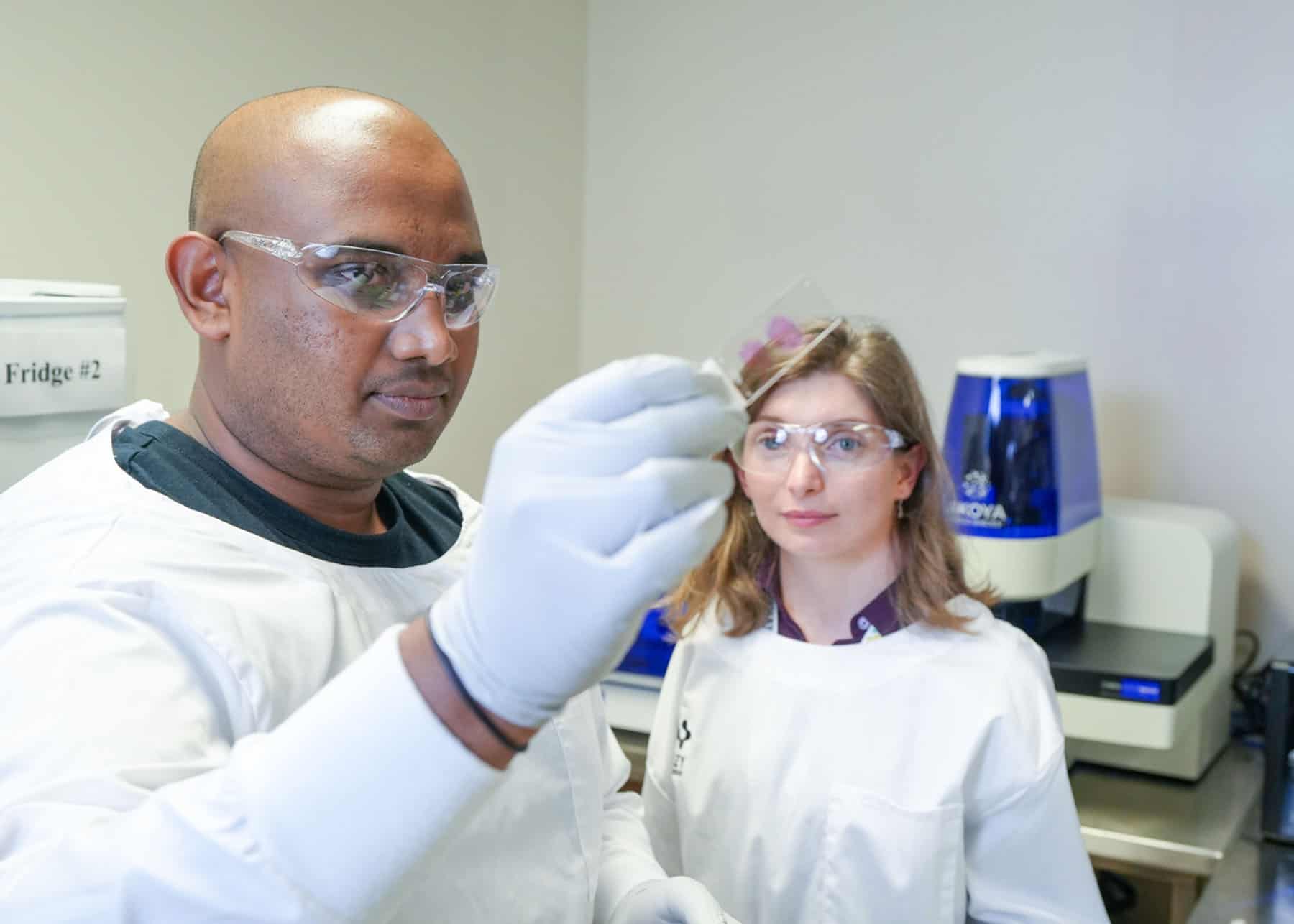
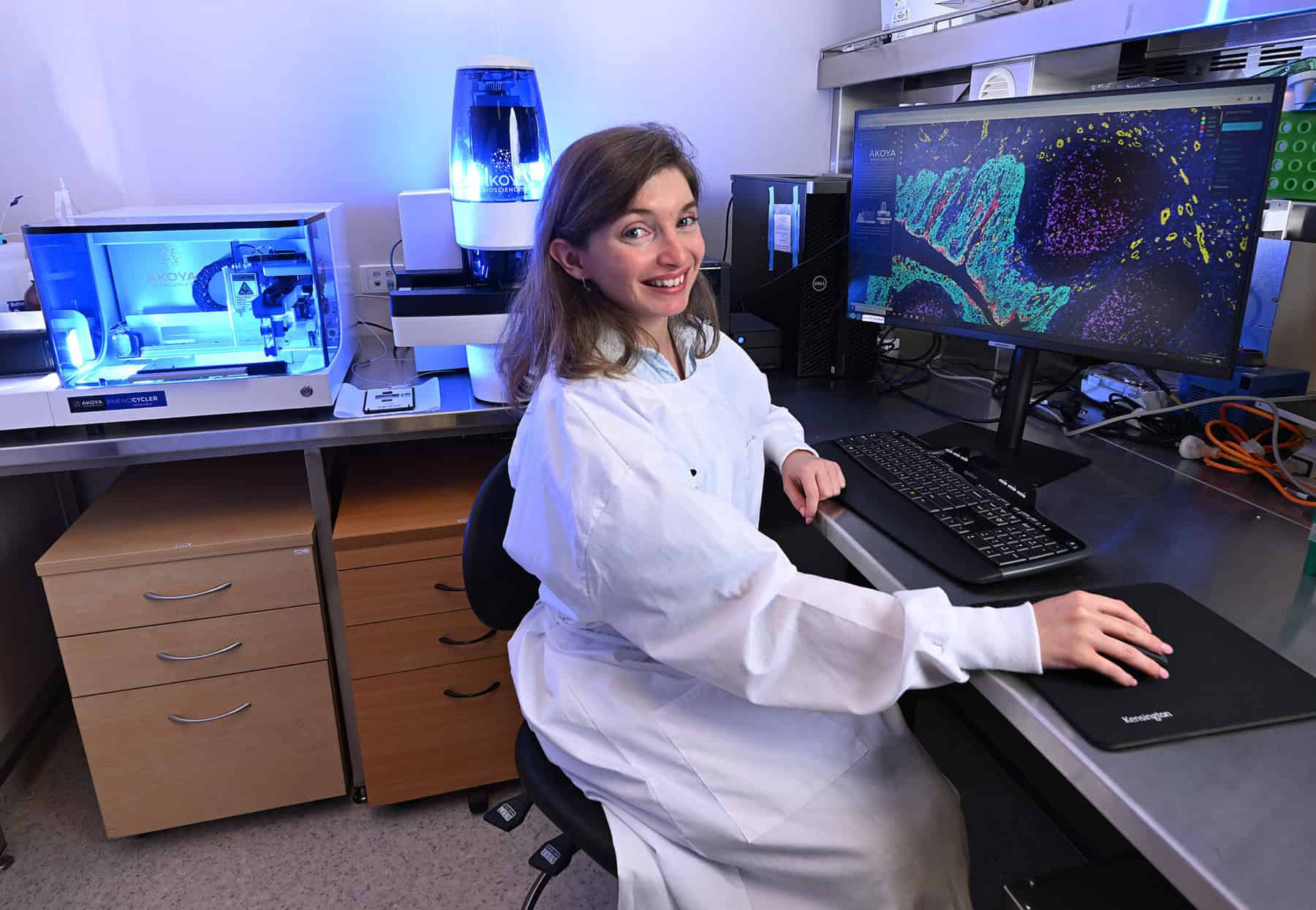

Looking Ahead – A Future of Promise
As we celebrate 30 years, we reflect on an extraordinary journey from our founding in 1994 to our role today as a leader in transformative health research. Driven by a focus on improving lives through patient-centred innovation, our commitment has remained strong.
The generosity of our community, corporate partners, and family foundations has been essential, enabling groundbreaking research to tackle some of our time’s most pressing health challenges.
We’d especially like to acknowledge Mitsubishi Development, JJ Richards & Sons, the many individuals and our valued family foundations and trusts for their steadfast support, which has enabled us to undertake long-term projects that yield lasting impact and push the boundaries of applied medical research.
As we look to the future, Wesley Research Institute remains dedicated to expanding our research capabilities and embracing new frontiers in health. With your continued support, we are prepared to make even more outstanding contributions to global healthcare.
Our Giving community has made our advancements in medical and healthcare research possible over the past 30 years. Will you join us in our mission to ensure a future of hope and promise?
